In the morning of May 10, 2019 at Hanoi National University of Education, a national scientific conference on "Family - school - society model in moral education, lifestyle for students and students meet the requirements of national renewal and international integration”. This conference is part of a series of research activities under the research KHGD/16-20.ĐT.024 by Assoc. Prof. Nguyen Van Bien chaired the Education Science Program for the period 2016-2020. Attending the seminar were Mr. Bui Van Linh - Head of Student Affairs Department – Ministry of Education and Training; Ms. Khieu Thi Nhan - Head of Office of Education Science Program 2016-2020; Prof. Dr. Do Viet Hung, Chairman of the University Council, Assoc. Prof. Dr. Nguyen Van Trao - Vice President of Hanoi National University of Education. The conference also had the participation of numerous experts, researchers, managers, policy makers.
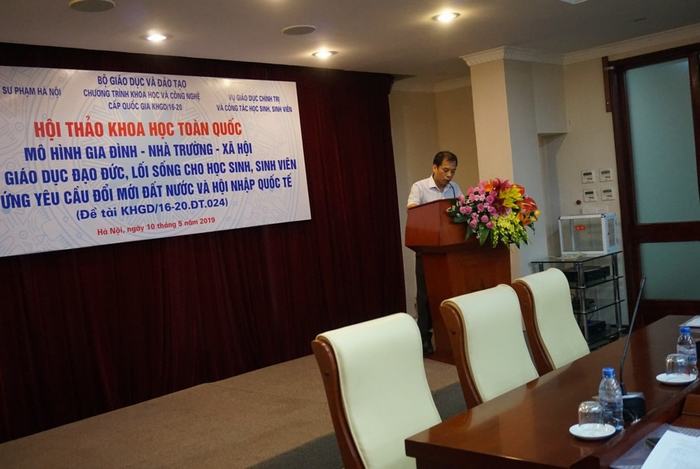
Photo: Assoc. Prof. Dr. Nguyen Van Trao started the conference.
The conference advisory committee selected 03 typical reports to present in the plenary session, 9 reports at two subcommittees: the subcommittee issues with scientific basis and subcommittee of practical models.
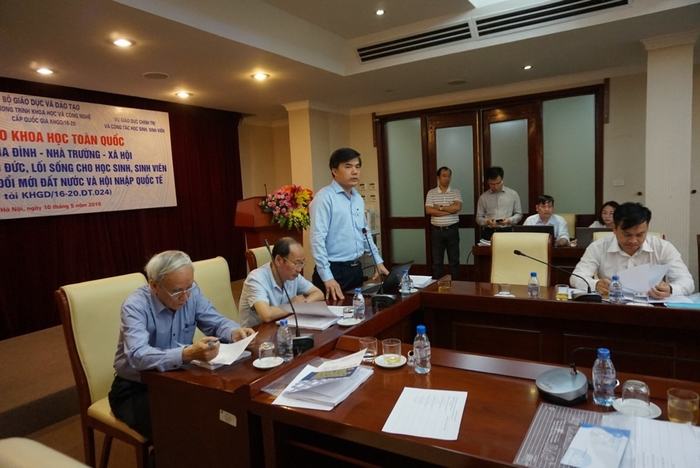
Photo: Mr. Bui Van Linh gave a speech to preside over the conference.
Addressing the conference, Mr. Doan Hong Ha - Deputy Director of Student Affairs Department clearly clarifies the conference objectives and directs the discussion contents including:
1. Current situation, advantages and shortcomings of the current school – family -society relationship.
2. Proposals to improve the relationship model between schools - family - society in educating moral lifestyles of students and students in the coming time.
3. Methods and criteria for evaluating the effectiveness of the proposed model.
4. Solutions to replicate typical models.
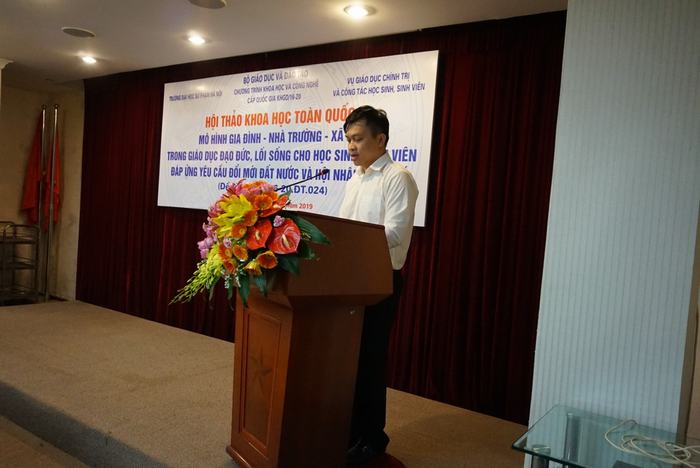
Photo: Mr. Doan Hong Ha presented the conference report.
After the lead report, TS. Nguyen Thi Ngoc Lien on behalf of the research team presented the conference results to consult experts and managers. In the analysis group's model, the participants and the level of participation of each object in the family - society relationship in the education of students' moral lifestyles are clarified. Assoc. Prof. Dr. Dao Thai Lai said that the model has shown the basic objects and principles of operating models and conditions for effective model implementation. Assoc. Prof. Dr. Tran Kieu emphasized that the model of family – school - society is an educational principle, which has been concerned for a long time but always new because of the ever-changing social context. Hence it is reasonable for the author to clarify the dynamics of the model. However, the model needs a clear distinction between different grade-level students who need different impacts of the forces involved in the model.
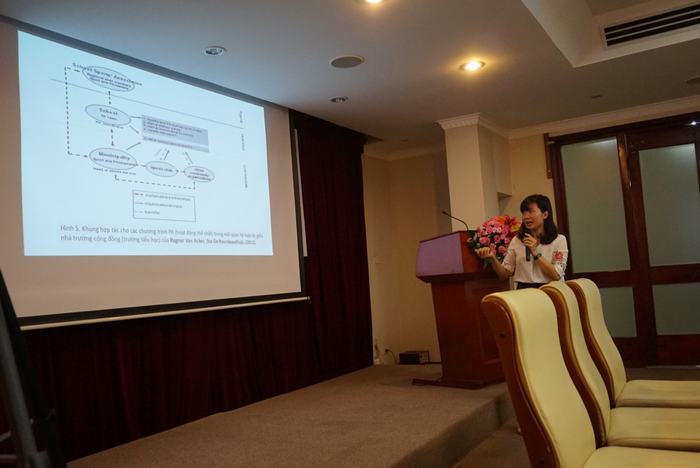
Photo: Dr. Nguyen Thi Ngoc Lien presented the models of Family – School - Society from theory to practice.
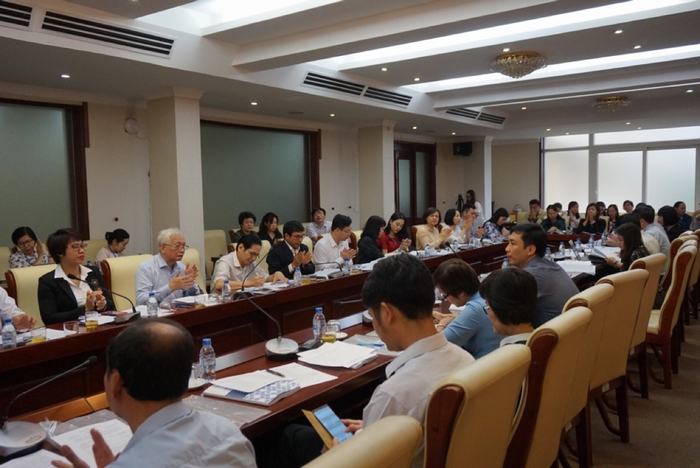
Photo: Delegates attended the conference.
Dr. Do Duc Hong Ha - Standing Member of the Judicial Committee of the National Assembly, pointed out in their report 7 basic factors affecting morality and student life, which are: Socio-economic factors; Cultural factors; Educational factors (including family education and school education); Management factor; Factors of specific circumstances lead to violations of morality, lifestyles of students; Relatives of students violate morality; Victim factor of moral violations, lifestyles of students and students. Each of these factors will directly and indirectly affect the coordination effectiveness of the objects in the family – school - society model.
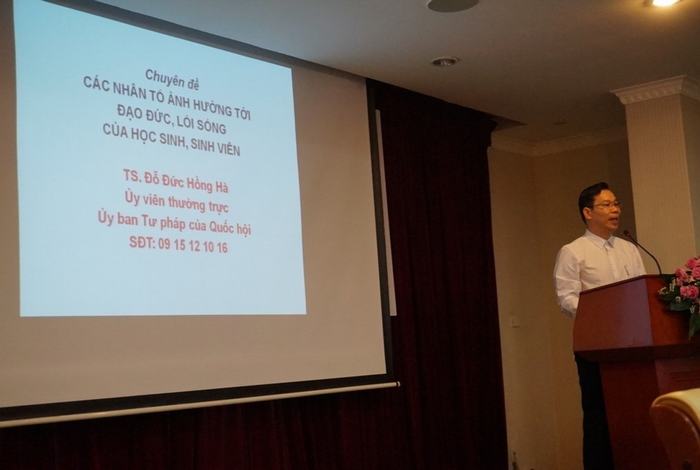
Photo: Dr. Do Duc Hong Ha - Standing Member of the Judiciary Committee of the National Assembly presented the conference.
Lessons learned from French education are analyzed by Assoc. Prof. Dr. Nguyen Thi Hanh - senior researcher living and working in France. According to the author, the French education model in addition to bright colors also had internal crisis issues in the moral education of students' lifestyles. Through careful analysis showed that facing the internal crisis is an international issue, professionals of every country in the world must always explore solutions to solve their nation's internal problems based on a multidimensional perspective. Lessons learned for Vietnam from the perspective of French education are as follows:
1. Recognize the problem and the way to solve ethical education related issues in the school under a "globalization" and "multidimensional" lens.
2. Deriving from the reality of the foundation and traditional basis, national culture
3. Clearly define the position, role and function of general education as well as higher education in a clear and practical educational philosophy that is relevant to Vietnam currently, especially suitable to a future social model that Vietnam aims to build.
4. "Publicizing" the school's activities is one of the necessary measures to bring more parents' involvement in ethical education activities.
5. "Quantify" the school's regulations under the specific, clear and transparent motto. In particular, it is necessary to clarify the specific provisions on the role and responsibility of the family to actively coordinate with the school.
6. Provide full information, especially School Rules and Student Communication Booklets.
Regarding these results, Assoc. Prof. Dr. Tran Kieu - Chairman of the Society for Psychological Science and Education said that recognizing some phenomenal and individual issues to assess education should be reconsidered.
Based on the analysis of large-scale survey results on the status of family – school - social coordination, the authors group Dr. Tuong Duy Hai pointed out that most forces outside the school only participate in passive coordination. Where there is active participation in the family and society, the results of moral education and student life will be more positive.
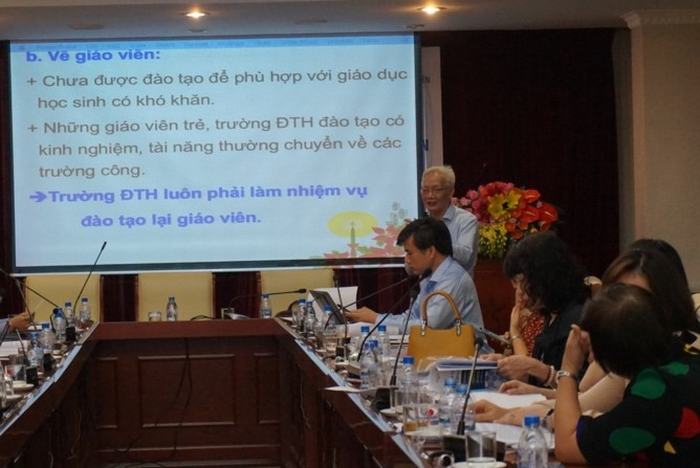
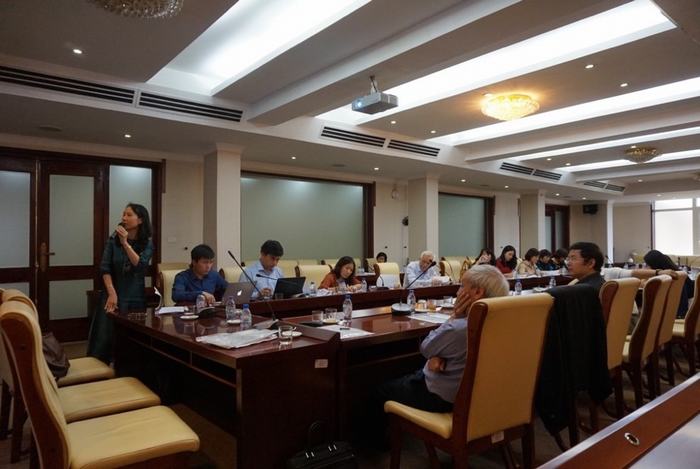
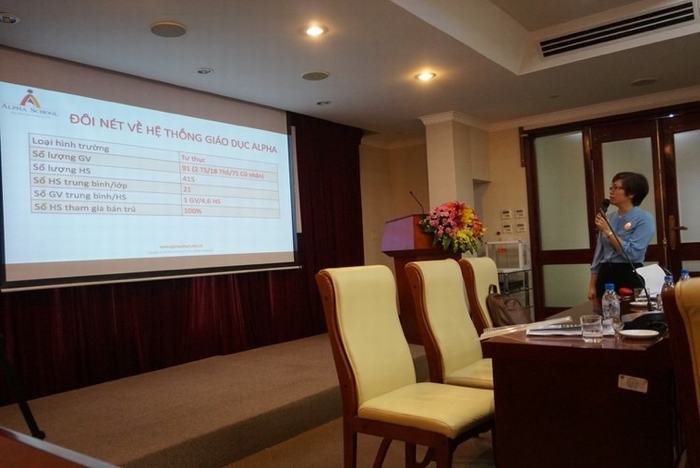
Photo: High schools show practical models.
Summarizing the conference, Mr. Bui Van Linh emphasized that the conference was successful with profound professional reports and vivid practical lessons. Through the comments, the research team should continue to improve the models to have specific solutions in which to specify each object participating in the model to what extent, and what are the specific measures to operate the model and the conditions for efficient operation model. The discussion results of the conference would be an important source of information for the Study Team to complete the current research results and orient the next research activities. These were also the important documents for the Student Affairs Department to advise the Ministry's leaders in directing and well performing the task of state management in the field of moral education, lifestyle for students in the coming time. At the same time, from that practice, the Ministry of Education and Training builds and replicates the typical model of coordinating schools - family - society in moral education, lifestyle for students nationwide.
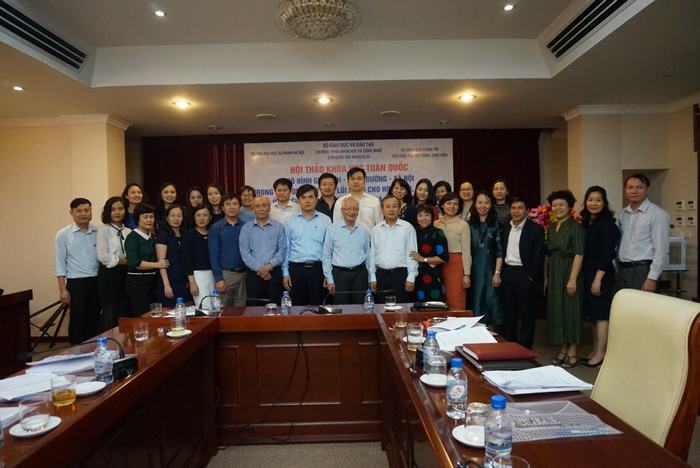
Photo: Delegates took photos after the conference ended.
In addition, the participants also heard presentations on family – school - society coordination models of some educational institutions such as Ton Duc Thang University – Ho Chi Minh City; Dinh Tien Hoang High school - Ha Noi; Primary, secondary, and high school for science education; Ha Huy Tap Secondary school; Alpha School Inter-school. Models with practical lessons provided a lively discussion of the conference.